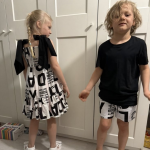An Autistic Child Is Harming Themselves — What Can Be Done?
Sometimes, anxiety and stress lead an autistic person to inflict physical harm on themselves. In some cases, this behavior helps them calm down; in others, it serves as a way to express needs or demands. Regardless of the reason, actions such as head banging against walls or furniture, scratching, pinching, hair pulling, or biting hands and palms must be prevented.
Possible Causes of Self-Injury in Autism
Self-injurious behavior in autistic individuals can have various causes, including:
• A nervous breakdown due to difficulty processing sensory information and sensory overload
• Physical discomfort — headaches, fever, infections, or pain
• Mental distress — depression, anxiety, and more
• Attempts at communication
• Seeking attention
• Reaction to abuse or bullying
• Lack of behavioral support from others
• Uncomfortable environments
Preventive Strategies for Self-Injurious Behavior
There are several strategies that can help prevent or reduce self-injury in autistic individuals:
• Providing an effective means of communication — if verbal speech is difficult, picture cards or sign language can help
• Creating a structured, regular, and predictable schedule that also includes meaningful activities during free time
• Allowing breaks during tasks
• Giving short and clear instructions on how to handle specific tasks
• Offering alternative sensory experiences
• Using noise-canceling headphones to block out loud sounds
• Providing rewards like favorite toys or meals when the child stops self-harming
• Engaging in physical activity, such as swimming
Understanding the Child’s Needs Is the Key
Understanding the child’s needs and preferences is the foundation for preventing and minimizing self-injurious behavior. The strategies listed above can play a significant role. However, in more severe cases, additional interventions may be necessary, such as medications (e.g., antipsychotics) or psychosocial therapy.
Why Is It Difficult to Eliminate Self-Harming Behavior?
The wide range of factors that can lead to self-injury makes prevention and treatment challenging. It’s important to understand that a child would not act this way if not for autism — a condition that can include self-harming tendencies among its symptoms.
Stem Cell Therapy: A Promising Approach
Today, the greatest chance to address not only the symptoms but also the underlying causes of autism lies in stem cell therapy. Unlike other methods, it is the most reliable, safe due to its minimally invasive nature, and natural, since it does not involve medications or psychological techniques. Instead, it activates the body’s regenerative capabilities.
Stem cells have a unique ability to transform into any type of cell. Once introduced, they replace damaged cells with healthy ones, which leads to improved brain and nervous system function and stabilizes overall psychological well-being. Positive results become noticeable soon after the procedure and last for a long time — in many cases, for life — significantly enhancing the effectiveness of other behavioral and therapeutic interventions.
Stem cell therapy, though relatively new, has already been widely recognized and is now offered in some of the world’s leading medical centers. Among them is the Mardaleishvili Medical Center, where highly qualified specialists use the latest-generation equipment and have achieved excellent results through stem cell transplantation. The level of care is comparable to that found in top clinics in the USA, Canada, Israel, and Western Europe — yet the cost is significantly lower. The center also assists with travel planning, accommodations, and other practical arrangements during the rehabilitation period.
Try Stem Cell Therapy — and Help Your Child Stop Self-Harming
Autism Treatment Center Videos
Autism treatment with own stem cells
Cord blood association congress
International Quality Crown
Autism Treatment Reviews
Autism treatment with own stem cells
The story of Alessandro (6 years old)
Autism Patient Testimonial - Stem Cell Treatment
Clients Testimonials
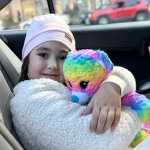
Lidiya — Elina’s mother Read More
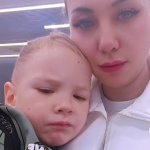
Anna – Sasha’s mother Read More

Amirkhon’s father — Tokhir Read More
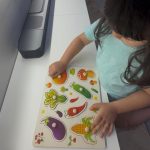
Dilana’s mother Read More
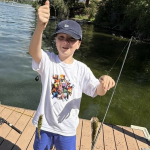
Irina and Stefan – Ilya’s parents Read More
